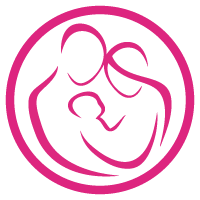
Infant Mental Health: What Does It Look Like in Practice?

Gretchen Becker Crabb is an Occupational Therapist, Licensed Professional Counselor, and Endorsed Infant Mental Health Therapist. She is also a Certified Lactation Counselor, La Leche League Leader, and Brazleton Newborn Observation (NBO) trainer.
Gretchen’s passion is rooted in fostering lifelong relationships and connection through co-regulation in pregnancy and beyond. Her unique approach to lactation support and therapy is rooted in culturally attuned sensory, somatic, and trauma-informed mental health techniques.
Gretchen owns and operates a private practice in Madison, Wisconsin. For 21 years, she has provided developmental, trauma, feeding, and attachment support for tiny humans and their caregivers in birth to three, preschool, private practice, and peer group settings. Gretchen is an international speaker, reflective supervisor, and infant mental health consultant. In these roles, she offers compassionate, experiential, and reflective holding spaces for professionals. She is a proud United States Air Force spouse and mother of three boys.
Topic: Infant Mental Health: What Does It Look Like in Practice? - [View Abstract]
Topic: Scent-Sational Connections: The Role of Olfaction in Development - [View Abstract]
Topic: Sensory Processing and Breast/Bodyfeeding: Using Co-Regulation to Support the Feeding Relationship - [View Abstract]
Topic: Vestibular Processing: Using the Sixth Sense to Support Lactation and Parent/Infant Relationships - [View Abstract]
In this presentation, we will dive into the world of infant mental health and explore the unique ways that providers promote relationship development in families and communities for the first five years and beyond. We will discuss the basic philosophies and strategies used in the field of infant mental health, then engage together in an interactive and thought-provoking case study. Somatic techniques, reflective strategies and cultural considerations will be woven throughout to deepen learning and curiosity-- bringing the concepts to life and promoting the integration of infant mental health concepts into your daily practice.
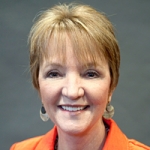
Interdisciplinary Neuroprotective Practice Standards and Perinatal Mental Health in the NICU

Dr. Craig lives in metro Atlanta, GA., is an Associate Professor and the Department Chair of Brenau University’s School of Occupational Therapy program. She has been practicing for 35 years, received her degree in OT at the Medical College of Georgia, her MBA from the University of Alaska-Fairbanks, and her PhD in Infant and Childhood Disorders with emphasis in Mental Health and Developmental Disabilities from Fielding Graduate University. Jenene currently serves as the Director of Education for National Association of Neonatal Therapists (NANT). She is also on the executive committee of the Board of Directors for the National Perinatal Association. In addition to consulting with several local NICUs, Jenene works PRN at a regional Level III NICU. She serves as a national speaker for the care of premature infants and families embattled in the stressful environment of the NICU. Jenene’s personal passion is to support multidisciplinary work in the NICU with a focus on parent-infant outcomes.
Hospitalization of a baby in a Neonatal Intensive Care Unit (NICU) has been described as a traumatic experience for both parents and baby leading to higher rates of postpartum depression and posttraumatic stress disorder in parents and to adverse developmental, cognitive and behavioral outcomes in their infants. The focus of care in the NICU has been broadening and evolving to emphasize the importance of supporting the family-infant relationship, since ultimately, the well-being of the family affects the well-being of the baby. Research documents that NICU parents both desire and benefit from psychosocial support from NICU staff, yet many staff, including neonatologists and neonatal nurses, do not feel they have adequate skills to support these needs. NICU staff need knowledge and tools beyond what typical healthcare education provides. Interdisciplinary recommendations for work toward best practice around psychosocial support of infants/parents and staff are presented.

Interoception: Beyond the Homunculus....The Real Sixth Sense and Its Primary Function as Sensory Input to the Autonomic Nervous System

Michelle has been a pediatric neurodevelopmental Occupational therapist specializing in precrawling infants for over 26 years. She has specialty certifications and training in lactation, manual therapy, and pre and peri natal psychology. Michelle has specialized in optimal cranial nerve function and oral restrictions, with an emphasis on infant movement, innate biological imperatives and human potential, providing novel curriculums, support and resources for both professionals and parents. She enjoys collaborating and working in teams for babies and families going through the tethered oral tissues release process.
Topic: Breastfeeding and Cranial Nerve Dysfunction – the what, who and why of Cranial Nerve Dysfunction in the newborn to precrawling baby - [View Abstract]
Topic: Compensatory vs Novel Movements: 3 Keys for Babies With Tongue, Lip and Buccal Restrictions - [View Abstract]
Topic: Interoception: Beyond the Homunculus....The Real Sixth Sense and Its Primary Function as Sensory Input to the Autonomic Nervous System - [View Abstract]
Topic: The Vagus Nerve: Branchial Motor / Special Visceral Efferents: The Pharynx, Larynx, Soft Palate and one tiny tongue muscle - [View Abstract]
Topic: TummyTime!™ : A Therapeutic Strategy for Parents and Babies - [View Abstract]
Interoception is a term used to describe our nervous system's awareness of the sensations from the gastrointestinal and visceral system, as well as the primary sensory part/input to baby's Autonomic Nervous System. ANS function and regulation underlay all automatic processes of the body, from heart beat to breastfeeding and digestion function, as well as maintaining a calm state in order to engage in social interaction or to transition easily in and out of sleep. More simply put, interoception is "feelings from the body". In addition to visceral information, interoceptive pathways carry information related to affective touch, itch, temperature and pain and are delivered to a separate area of the brain, the insular cortex, which also contains a map of the body, similar to the well known homunculus. Interception plays a large role in dynamic equilibrium and autonomic regulation of tissues of the body. Interoceptive information and the processing is the basis of all important activity to optimize energy utilization. This system is often compromised in babies who present with complex oral dysfunction, tethered oral tissues, postural asymmetries, fussiness, gas, reflux or other dysregulation in function. How babies feel is mirrored in how they function, compromised function equals compromised interoceptive processing. This talk covers the basics of this system and practical clinical applications for precrawling babies to optimize neurodevelopment and breastfeeding abilities.

View Details / Enroll
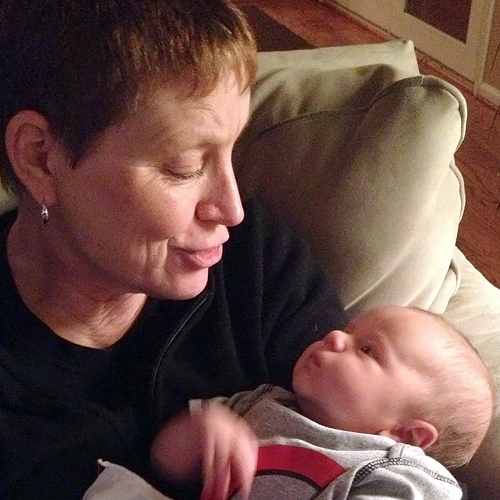
Is Sleep Really A Necessity? Nighttime Parenting With Multiple Infants

Karen Kerkhoff Gromada, MSN, RN, IBCLC, FILCA has been an IBCLC since 1991 and has worked as an IBCLC in both private practice and hospital settings. She also has experience as an adjunct clinical instructor for the University of Cincinnati College of Nursing and as a staff nurse in labor and delivery, childbirth education and postpartum discharge nursing care. Gromada was accredited as a La Leche League (LLL) Leader in 1975 and formed the first LLL group for mothers of multiples after the birth of her twin sons. The experiences of the group’s mothers provided the basis for her book Mothering Multiples: Breastfeeding and Caring for Twins or More. Her numerous articles and chapters about breastfeeding multiples have been published in professional and lay publications. A former International Lactation Consultant Association (ILCA) president (1994-96), she was designated Fellow of the International Lactation Consultant Association (FILCA) in 2008.
Sleep deprivation and disruption of an individual’s circadian patterns in the postnatal period are frequently cited as contributing factors in the development of postpartum depression, anxiety (PPD&A) or postpartum post-traumatic stress symptoms (P-PTSS). These factors are increased for the birthing parent of twins, triplets or more, who is more likely to bring two or more newborns home after experiencing perinatal complications and related interventions, and infants’ preterm birth, low birth weight and other complications, often resulting in neonatal intensive care unit stays. Even for a relatively ideal multiple pregnancy and birth, caring for two or more newborns – each having as many needs as any single-birth newborn – round-the-clock parenting generally leads to profound and often long-term sleep deprivation. When significant sleep deprivation affects a parent’s daytime behavior, all family members are affected. Yet current “safe sleep” recommendations or nighttime strategies promoting better sleep for parents and a single infant, including safer bedsharing techniques, are more difficult logistically to implement. These recommendations and strategies may also be less safe to implement with multiple infants. This session will examine the factors contributing to disruptive sleep for parents of multiples and develop strategies that meet both infants and parents needs for adequate sleep.
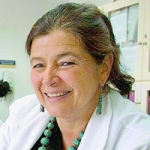
Kangaroo Mother Care Now and Then: 30 Years of KMC Clinical and Research Experience in a Developing Country

Dr Nathalie Charpak is currently the scientific coordinator and an attending paediatrician at the Kangaroo Mother Care program of the San Ignacio University Hospital. In addition, she is a founding member, senior researcher and director of the “Fundacion Canguro” in Bogotá, Colombia since 1994. Dr Charpak received her M.D. from the “Paris Sud” University and her paediatrician diploma from “Rene Descartes” University in Paris, France. She migrated in 1986 to Colombia where she validated her title as Paediatrician and begin in 1989 to work on the evaluation of the Kangaroo Mother Care (KMC) program. She is now a Colombian citizen. With several colleagues she founded in 1994 the “Fundacion Canguro” in Bogotá, an NGO devoted to research, teaching, training and direct medical care related to KMC method for premature infants that besides conducting large clinical trials on KMC has been actively disseminating the method mainly in low and middle income countries in Latin America, South East Asia, India, Africa and Eastern Europe. In 1996 in Trieste Italy she was among the group of international researchers, physicians and nurses who founded the International Kangaroo Network -INK- an international alliance devoted to collaborating, enhancing and disseminating the KMC method. Dr Charpak continues to work as an attending paediatrician in the KMC program and his current research interest is in integrative methods for summarizing and putting into action what is known about KMC in the form of evidence-based clinical practice guidelines. She is also recently involved as coordinator in conducting evaluations of long term (adolescents and young adults) neurodevelopment outcomes in preterm infants exposed or not exposed to KMC during the neonatal period.
The Kangaroo Mother Care (KMC) Method is primarily targeting the preterm and/or LBW infants once they are stabilized and adapted to extra-uterine life. KMC has three mayor components: kangaroo position (KP) or direct skin-to-skin contact between the mother and the baby; the kangaroo nutrition (KN) based on exclusive breastfeeding and the kangaroo discharge policies: early discharge in KP at home or in a KMC ward under strict follow up. KMC is a tool for humanization at all levels of neonatal care. There is sound scientific evidence for the effectiveness and safety of KMC in terms of mortality, early infectious morbidity, development, promotion and maintenance of breastfeeding. Also, there is evidence for the beneficial effects of KMC on establishing healthy bonding between mothers and infants. Many health professionals consider KMC as a means of protecting the immature brain when it is the most fragile and the results of our long term follow up are supporting this hypothesis.

View Details / Enroll
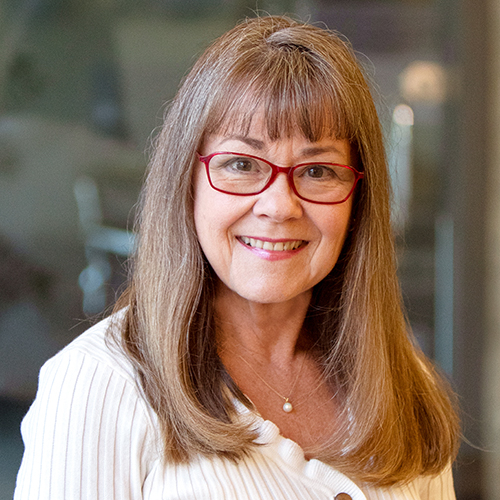
Laying the Foundation for Self-Discipline With Infants and the Very Young

Ruth Anne Hammond is the author of Respecting Babies: A Guide to Educaring for Parents and Professionals (Zero to Three, 2019), and is a consultant for infant/toddler care and education. Having been mentored by Magda Gerber, founder of Resources for Infant Educarers, she teaches and mentors parents and professionals in the US and abroad. She served on RIE’s board of directors for many years and was President from 2006 through 2011. She was on the faculty of Pacific Oaks College & Children’s School as both a member of the Senior Adjunct Faculty and a Master Teacher in the Infant/Toddler-Parent Program for 17 years. She is currently on the board of directors of Families Forward Learning Center in Pasadena, CA and serves as chair of the Programs Advisory Committee. Ms. Hammond earned a Bachelor of Fine Arts in Dance from Southern Methodist University and a Master of Arts in Human Development, specializing in Infant/Toddler Studies and Leadership in Education, from Pacific Oaks College. She is a longtime member of psychologist Allan Schore’s interpersonal neurobiology study group.
How a child is cared for in the earliest months and years of life, pre-birth to three or so, can foster the implicit development of what will be seen as self-discipline in the preschool years and later. In this workshop, participants will have the opportunity to connect the dots between respectful, attuned caregiving, self-initiated activity, authentic communication and the development of self-regulation, the necessary precursor to healthy self-discipline.
We will explore the basics of Dr. Allan Schore’s Regulation Theory, which integrates Bowlby’s classical Attachment Theory and modern interpersonal neurobiology, as well as practical ways to put it into practice in the home or anywhere infants and young children are being cared for. The Educaring Approach, which will be referred to, offers replicable strategies and tools for building the secure relationships that form the basis for children to develop into to peaceful, cooperative and confident people who exhibit the benefits of self-discipline.
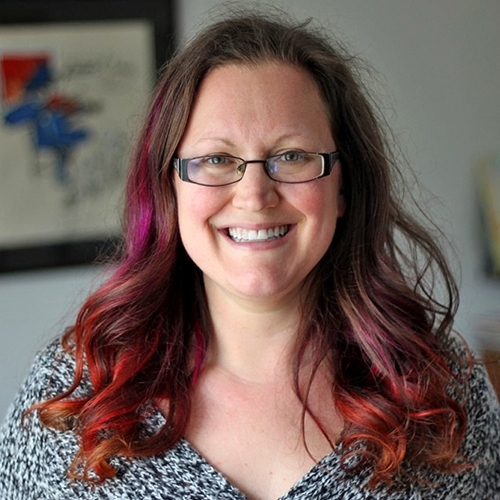

Tracy Cassels, PhD is the founder of Evolutionary Parenting, a website focused on disseminating the research on parenting. In addition to her writing, she provides courses and individual help to families around the world on myriad parenting issues. She has previously worked in non-profit and policy positions in the areas of child development and education and is currently an advisor to the Children’s Health and Human Rights Partnership in Canada. She has a B.A. in Cognitive Science from the University of California, Berkeley, an M.A. in Clinical Psychology from the University of British Columbia, and a Ph.D. in Developmental Psychology, also from the University of British Columbia. She has appeared in numerous mainstream media sources such as the CBC, Psychology Today, The Globe and Mail, Belly Belly, and more. She lives in Prince Edward County, Ontario, Canada with her husband and two children.
Sensitive or orchid individuals make up about 20% of the population, children included. These individuals face what we call ‘differential susceptibility’ based on their environments, child-rearing included. In environments that are not well-suited to their sensitive nature, they face higher rates of disease, mental health disorders, and other negative outcomes. In contrast, when in environments that are supportive and well-suited to their nature, they thrive and can have outcomes that surpass those of their less sensitive counterparts. The problem for most parents is that the advice and techniques common in our culture are at odds with what these children need, putting parents in a difficult spot of either not knowing how to parent such a child (but knowing the advice seems wrong) or giving in and finding themselves in ongoing struggles with their child. This talk will review the research on sensitive/orchid children and how we can use this information to help families identify parenting methods and techniques in the areas of general parenting, sleep, child care/schooling, and discipline that will provide the type of foundation these children need to thrive.

Post Frenotomy Wound Management and Bodily Autonomy

Effath Yasmin is India's leading Biodynamic Craniosacral Therapist, an award winning International Board Certified Lactation Consultant & a Documentary Film Maker. She is also an International Speaker, an Author & a Bach Flower Practitioner.
Her special interests lie in Infant Oral, Sucking & Airway Dysfunction, Tongue Tie, Birth Trauma, Craniofacial Development and a range of chronic physical and mental dis-eases & quantum energy phenomenon. She applies these sciences into Life Coaching, Inner Child Healing and Parenting. Her approach stems from fundamental truth of human organism is complete and self-regulatory and treatment & counselling approach is by deep listening & true empathy to mind body and spirit rather than by intervention.
She currently sits on several national & international professional boards.
She has spear-headed & dedicated her life to many projects with a central mission of advocacy, education and awareness for integrative multidisciplinary wellness approach worldwide. Her work has been published in the International Journals & a textbook and she writes extensively on print and digital media on the subjects of Breastfeeding, Tongue Tie, Parenting & Health related subjects.
Her international award winning film 'Untying Breastfeeding' exposes the glaring unseen obstacles to Birth & Breastfeeding & early parenting that can help restore motherhood and has been widely celebrated over 1500 Cities worldwide. She is currently pursuing her Ph.D. in Metaphysical Sciences.
Topic: Rethinking Surgical Tools - Infant Frenotomy & Pain - [View Abstract]
Topic: Trauma Informed Care in Clinical Infant Oral Assessment: Understanding Body Autonomy - [View Abstract]
The most talked about discussions amongst parents or professional groups across the world is post frenotomy wound management. In the last 15-20 years of development, the field of oral restrictions has yet to see an evidence-based approach or even just a global consensus on approaches and their efficacy in wound management. Therefore lactation consultants, dentists, and surgeons have been using their clinical reasoning to choose the methods and protocols for individual breastfeeding dyads. Nevertheless, the current unregulated wound management protocols have been often reported as traumatic experiences for infants, parents, and care providers. Additionally, a physical oral examination of an infant during the assessment, evaluation, and treatment, and rehabilitation of oral restrictions is essential and vital in an IBCLC clinical practice. It's often seen as a ‘necessary evil’ in clinical work. Some infants may be at risk of reattachment and/or trauma which can have lifelong impacts such as triggers for past memories, anxiety, distress or discomfort, or even PTSD. This can lead to oral aversion symptoms, complete refusal to latch and breastfeed, turning away from food, and gagging, coughing, and choking. Therefore, a respectable trauma-informed approach to oral examination and wound management is based on the fundamental principles of respect for bodily autonomy ensuing a sense of safety, trust, and connection.

Scent-Sational Connections: The Role of Olfaction in Development

Gretchen Becker Crabb is an Occupational Therapist, Licensed Professional Counselor, and Endorsed Infant Mental Health Therapist. She is also a Certified Lactation Counselor, La Leche League Leader, and Brazleton Newborn Observation (NBO) trainer.
Gretchen’s passion is rooted in fostering lifelong relationships and connection through co-regulation in pregnancy and beyond. Her unique approach to lactation support and therapy is rooted in culturally attuned sensory, somatic, and trauma-informed mental health techniques.
Gretchen owns and operates a private practice in Madison, Wisconsin. For 21 years, she has provided developmental, trauma, feeding, and attachment support for tiny humans and their caregivers in birth to three, preschool, private practice, and peer group settings. Gretchen is an international speaker, reflective supervisor, and infant mental health consultant. In these roles, she offers compassionate, experiential, and reflective holding spaces for professionals. She is a proud United States Air Force spouse and mother of three boys.
Topic: Infant Mental Health: What Does It Look Like in Practice? - [View Abstract]
Topic: Scent-Sational Connections: The Role of Olfaction in Development - [View Abstract]
Topic: Sensory Processing and Breast/Bodyfeeding: Using Co-Regulation to Support the Feeding Relationship - [View Abstract]
Topic: Vestibular Processing: Using the Sixth Sense to Support Lactation and Parent/Infant Relationships - [View Abstract]
Though so obvious, the sense of smell is quite integral to well-being and human connection. As the loss of smell has been highlighted as one of the main symptoms of COVID, it invites a deeper understanding of the functional impacts of olfactory differences in children and caregivers. In this presentation, we will learn about the cultural history and neurological basis of olfaction. We will explore how smell plays a role in feeding, interpersonal relationships, and safety as well as olfactory strategies to promote physical health and co-regulation.
IMPORTANT: In this presentation we will do experiential work, so please have a journal, the following scents and food available:
One Citrus Scent (e.g. lemon, lime, orange)
One Woodsy/Earthy Scent (e.g. leaves, rocks, soil)
One article of clothing worn by someone you are close to (e.g. spouse, child, close friend, parent)
Carrot or other raw vegetable to eat


For over 25 years, Caroline has had the pleasure of advising new mothers, growing families, and breastfeeding babies. Along with being a certified lactation consultant in private practice, she leads a weekly parenting and breastfeeding support group for moms and their babies through six months of age. For nearly two decades at a community hospital, she taught prenatal breastfeeding classes. She works among a team of lactation consultants in a thriving postpartum unit. Caroline also practices as a nurse practitioner at a pediatrician’s office. As a provider, she enjoys integrating her knowledge and skills from pediatric nutrition and lactation into primary care. Currently working on a breastfeeding book for new moms, she remains passionate about using various means to teach breastfeeding and help families get off to a great start.
Out of desperation to improve the morbidity and mortality rates of premature infants in Bogota, Colombia, innovative neonatologists developed the concept of kangaroo care . Since then, it has been modified to skin to skin care in NICU’s across the world. In recent years, the benefits of this care have been demonstrated and extended toward use in the full-term infant. With a fresh perspective, application of principles from infant development, anatomy, and physiology, are integrated to realize advantages of incorporating skin to skin through 12 weeks of age. When done correctly, skin to skin time serves as tummy time, minimizes the incidence and severity of acquired plagiocephaly, and provides a gentle treatment for torticollis. Learn how to engage, educate, and empower new families to succeed with this breastfeeding friendly intervention.

View Details / Enroll



